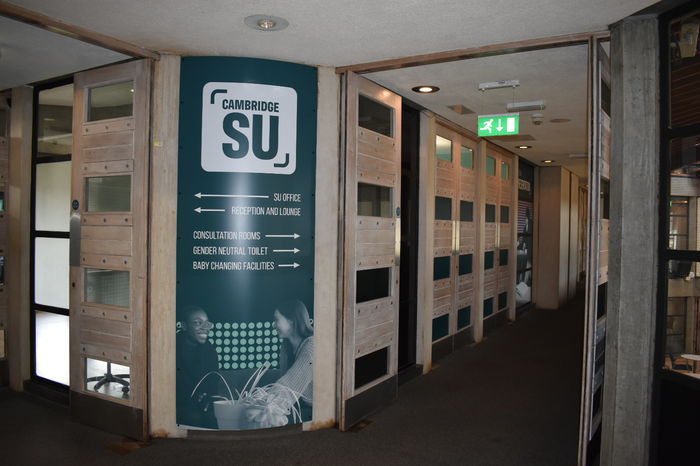SU election results revealed
Augustin Denis and Matthew Copeman have been elected the new SU presidents

The Students’ Union (SU) announced the results of the 2025 sabbatical elections last night (27/2).
Augustin Denis and Matthew Copeman were elected postgraduate and undergraduate president respectively.
Denis, who has represented Cambridge for Palestine (C4P) on the University’s arms divestment working group, campaigned on a progressive manifesto. Denis promised to promote the SU’s liberation work, push back against “casualisation” in higher education, lobby for arms and fossil fuel divestment, and support international students affected by crises overseas.
Copeman also called on the University to divest from fossil fuel and arms companies in his manifesto. He has also pledged to open an affordable SU bar, reduce funding discrepancies between colleges, and make lecture recordings mandatory for all subjects.
His election followed complications around one of the other candidates. Nesar Rafiq was deemed ineligible for the office of SU undergraduate president by the returning officer on Wednesday (26/2), because he was not considered to be an undergraduate, but was later approved by the SU's board of trustees to fit the definition of an undergraduate.
Students also elected three vice presidents: Olivia Ledger, for student communities and societies, Melanie Benedict, for liberation and welfare, and Jessica Asiedu-Kwatchey, for education and widening participation.
Ledger, the president of Cambridge board gaming society, said she would seek to help students book rooms for societies and vacation storage, support students who were intermitting or studying abroad, and campaign for work extensions to be granted to students with musical or sporting commitments.
Benedict pledged to support the newly-independent liberation campaigns, work with the Cambridge community to help students to improve their activism, and review the University’s harassment and sexual violence procedures, as well as the efficacy of the counselling service.
As the new liberation sabbatical officer, Benedict will be responsible for the SU’s engagement with communities who were previously represented by the three liberation officers: the BME officer, women’s officer, and disabilities officer.
These officers previously headed up the liberation campaigns which have now been made independent, in order to free them from the restrictions of charity law, by which the SU is bound. The independent campaigns will continue to get funding from the SU.
Asiedu-Kwatchey was the only officer elected unopposed in this year’s elections. This represented a change from last year when four of the full-time roles were elected unopposed. Asiedu-Kwatchey has pledged to tackle Cambridge’s “culture of overwork”, improve access and outreach to prospective students from underrepresented groups, and improve financial support to students struggling with the cost of living.
Darragh O’Reilly has been elected University Councillor. His campaign push involved promises of “holding the University accountable” and fighting for justice in Gaza and Ukraine, in addition to providing Camcard access to all colleges, and doubling the frequency of the U-Bus.
O’Reilly and Denis were both endorsed by PalSoc. Ledger and Benedict were also endorsed by both PalSoc and Cambridge for Palestine during their campaign run.
This year’s elections saw 4,725 student voters go to the polls, giving an overall turnout of just under 19%. This is a substantial increase on last year’s turnout, which was roughly 10%, the same as the year before.
Undergraduates were much more likely to vote than postgrads, with 3294 undergrads voting, compared to 1424 postgrads. Cambridge has roughly equal numbers of postgraduate and undergraduate students.
 Features / Should I stay or should I go? Cambridge students and alumni reflect on how their memories stay with them15 December 2025
Features / Should I stay or should I go? Cambridge students and alumni reflect on how their memories stay with them15 December 2025 News / Cambridge study finds students learn better with notes than AI13 December 2025
News / Cambridge study finds students learn better with notes than AI13 December 2025 Comment / The magic of an eight-week term15 December 2025
Comment / The magic of an eight-week term15 December 2025 News / Uni Scout and Guide Club affirms trans inclusion 12 December 2025
News / Uni Scout and Guide Club affirms trans inclusion 12 December 2025 News / News In Brief: Michaelmas marriages, monogamous mammals, and messaging manipulation15 December 2025
News / News In Brief: Michaelmas marriages, monogamous mammals, and messaging manipulation15 December 2025










